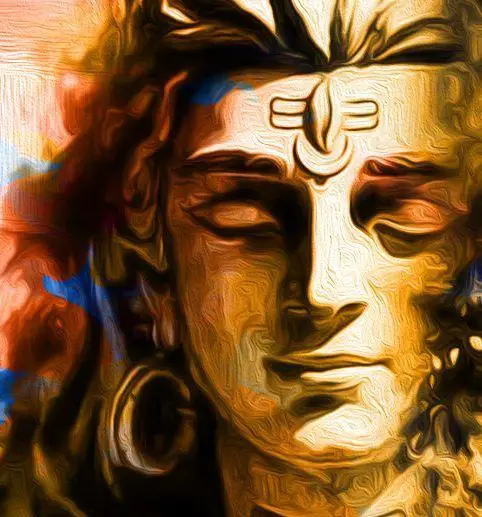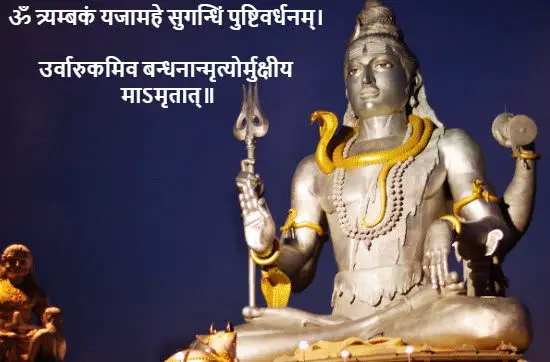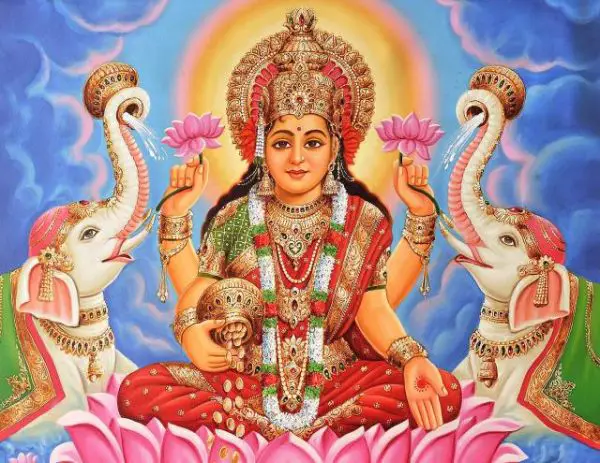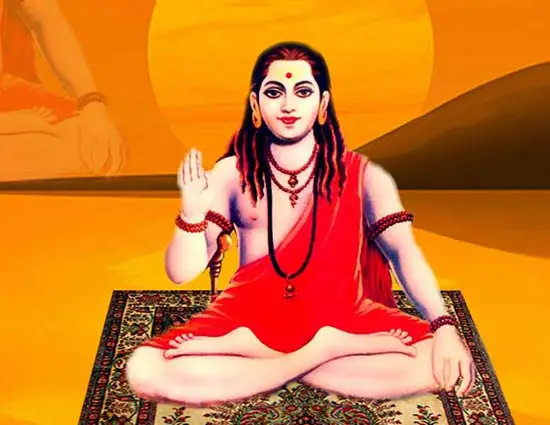Hindu Religion has placed our forefathers, ancestors, and past generations on the highest pedestal. Accordingly, it has reserved a particular period known as Pitru Paksha or Shraddha, during which we can express our gratitude to the previous generations of people, especially through prayers and food offerings.
Hindu Religion is often associated with festivals and celebrations.
However, do you know that the Hindu Religion also reserves a special place for our previous generations apart from honoring Gods and Goddesses?
Table of Contents
What is Pitru Paksha or Shraddha?
Pitru Paksha or Shraddha has special importance in Hindu Religion. It is a custom that the Hindus have practiced to remember their ancestors. Pitru or Pitra means ancestors, and Paksha refers to a particular period. So, Shraddha suggests that it is a period when we express our gratitude to our forefathers, ancestors, and departed souls.
According to ancient Hindu scriptures, Pitru Paksha is a 16 lunar day period during which we pay homage to our ancestors through food offerings. Hence, the period is also known as Pitru Paksha, Sola Shraddha, Jitiya, Mahalaya Pakshya, and Apara Paksha.
In southern and western India, Pitru Paksha is observed in the second fortnight of the Bhadrapada Hindu lunar month. In North India, the Shraddha period falls in the waning fortnight of the lunisolar month Ashwin.
However, this is just a difference in the nomenclature of lunar months. All the Hindus perform Pitru Paksha or Shraddha rituals on similar days.
The last day of the Shraddha is considered the most important day and is known as Mahalaya Amavasya. The Hindu believers offer prayers and food to their ancestors during this period. Only male members of the family perform Pitru Paksha rituals.
It is believed that by performing the Pitra Paksha rituals, the entire family is blessed by their ancestors. However, the period is considered very inauspicious, and no new activity is started on these days.
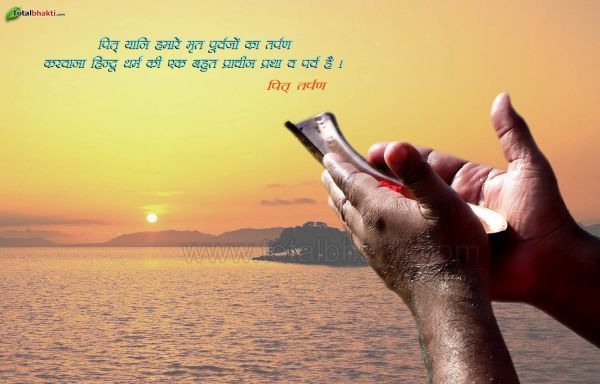
Image Credit: TotalBhakti
Why should you observe Pitru Paksha?
You may ask why you should please your ancestors when they are dead.
What is the need to observe the Pitru Paksha rituals?
What is the significance of Pitru Paksha or Shraddha?
Firstly, without our ancestors, we would not exist here.
Secondly, today, our ancestors’ contributions and generations that existed before us, whatever we have, got results today.
So, Pitru Paksha allows us to respect and thank our forefathers. It is an occasion to express our gratitude towards all of them.
Moreover, we have to pay respect to our ancestors.
It is believed that our ancestors blessed our family. By taking their blessings, one can live a happy life on earth. When the ancestors rest in peace, you can see that your family will prosper.
According to Hindu or Sanatan Dharma Scriptures, the performance of Shraddha or Pitru Paksha rites is compulsory. By performing Shraddha, one ensures that the soul of the ancestor goes to heaven. The ancestors bless the performer and his family with wealth, knowledge, health, and longevity.
So, one must perform Shraddha puja with complete dedication. You could also do Pitru Paksha or Shraddha puja under the guidance of a learned priest. After the puja, you should offer food to your ancestors.
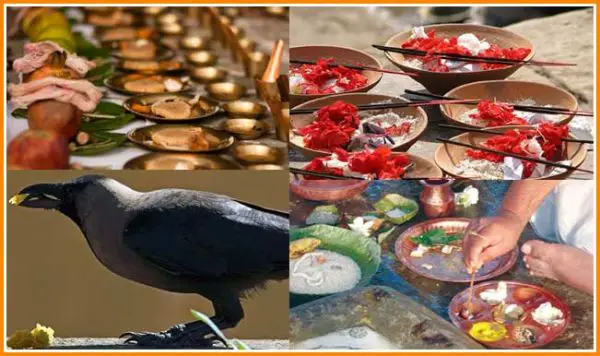
The legend relating to Shradh
According to Hindu mythology, the souls of three preceding generations of one’s ancestor dwell in “Pitru – Loka,” a realm between heaven and earth.
When a person dies, Yama, the God of death, takes his soul from earth to Pitru-Loka. It is believed that at the beginning of Shraddha, when the Sun enters the zodiac sign of Libra, the spirits leave Pitru-Loka and stay in the descendants’ homes for one month until the Sun enters the Zodiac Sign of Scorpio. During the first half of this month, the Pitru Paksha period, Hindus are expected to pay homage to their ancestors by offering them prayers and food.
According to one popular Hindu legend, his soul transcended heaven when King Karna (the famous warrior in the epic Mahabharata) died. There he was offered food made of gold. Karna was surprised to see such treatment. He had been very pious and had done so much charity throughout his life.
At this, the king of Gods, Indra, told him that he had only donated gold and gems. He had not offered food and water to the poor and neither to his ancestors. Karna felt sorry for his mistake and wanted to correct it. So Indra permitted Karna to return to earth for sixteen days to perform Shraddha and contribute food and water to his ancestors’ memory.
Since then, the period has been known as Pitru Paksha.
Some other facts relating to Shraddha or Pitru Paksha
- Sarvapitri Amavasya is considered to be the most important day of the Pitru Paksha period. On this day, Shraddha rites can be performed for all ancestors, irrespective of the lunar day they died.
- Other special days in the Pitru Paksha period are Chautha Bharani, Bharani Panchami, Avidhava Navami, and Ghata Chaturdashi.
- The Shraddha rites are performed only at noon. It is usually done on the bank of a river or lake or at one’s own house.
- People also make a pilgrimage to places such as Gaya and Varanasi to perform Shraddha.
- The son only performs shraddha for the preceding three generations.
- The ancestors’ food offerings consist of Kheer, Lapsi, Dal, Rice, the vegetable spring bean, and a yellow gourd.
- A ring of “Kush” grass is worn by the male who performs the Shraddha rites.
- The Shraddha involves “Pinda-Daan” (these are balls made of cooked rice and barley flour mixed with ghee and black sesame seeds).
- The food offering is considered to be accepted if a crow devours it. The bird is believed to be a messenger from Yama.
- Brahmin priests are also offered food.
- Ritual recitals from scriptures such as Bhagavata Purana and the Bhagavad Gita are also done.
- You should not start any new activity during the Pitru Paksha period.
Pitru Paksha Date 2025
Pitri Paksha will begin on 7th September 2025, Sunday
It ends on 21st September 2025, Sunday
- September 7, 2025 (Sunday): Purnima Shraddha
- September 8, 2025 (Monday): Pratipada Shraddha
- September 9, 2025 (Tuesday): Dwitiya Shraddha
- September 10, 2025 (Wednesday): Tritiya Shraddha
- September 10, 2025 (Wednesday): Chaturthi Shraddha
- September 11, 2025 (Thursday): Panchami Shraddha
- September 11, 2025 (Thursday): Maha Bharani
- September 12, 2025 (Friday): Shashthi Shraddha
- September 13, 2025 (Saturday): Saptami Shraddha
- September 14, 2025 (Sunday): Ashtami Shraddha
- September 15, 2025 (Monday): Navami Shraddha
- September 16, 2025 (Tuesday): Dashami Shraddha
- September 17, 2025 (Wednesday): Ekadashi Shraddha
- September 18, 2025 (Thursday): Dwadashi Shraddha
- September 19, 2025 (Friday): Magha Shraddha
- September 20, 2025 (Saturday): Chaturdashi Shraddha
- September 21, 2025 (Sunday): Amavasya Shraddha
These dates are based on the Hindu calendar and may vary slightly depending on the location.
We see that the Shraddha or Pitru Paksha period allows us to pay our respects to our ancestors and forefathers. Thus, we should always perform Puja during Pitru Paksha to please our ancestors.

